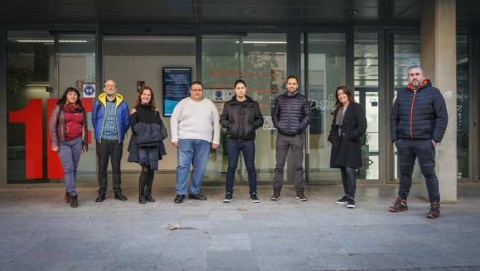Computación
What A VPN is and What a VPN Isn't
There is an army of online shills claiming that a VPN is this magic box that completely anonymises you online and guarantees your internet security.
The problem is that this isn’t really true.
There are some valid reasons to use a VPN but most of the claims online are borderline misleading, and advertisements have been taken down for exaggerating what a VPN is and how one works.
This article attempts to explain what a VPN is, what it can do, and the real reasons you’d use one. If that’s something you’re interested in, read on.
Will A VPN Protect You On Public WiFi
There’s a common claim that hackers can snoop on your internet traffic and read all your passwords like they are clear text when you are on public WiFi.
The problem with this claim is that most of the internet is already encrypted. Nowadays, almost every time you access a website you’ll see a padlock on the screen.
This means that your traffic is encrypted before it leaves the computer. If you see HTTPS before the URL chances are you’re safe.
Why Use A VPN Then?
The army of paid shills on the internet might overstate the importance of a VPN for online privacy, but there are legitimate reasons to use a VPN.
If you don’t want your ISP to what page you’re navigating to then a VPN will hide that from them. Even with HTTPS, they can see youtube.com/the-name-of-the-video or amazon.com/the-item-you-looked at.
A VPN hides this information from your internet service provider.
A VPN will also hide this information from your school or boss. If you were studying at a conservative school or using dorm WiFi, you might not want the systems admin to know which sites you are visiting. In some countries, ISPs can sell this data to advertisers, limit traffic to certain websites or create a profile on you.
There are also benefits to using a VPN to log into sites that aren’t secure.
If a hacker was listening to an unencrypted login, they would receive your password and username.
They could log in to that dodgy streaming site and get your password snooped. If your credentials are also how you log into your online banking that’s a problem. A compromise at a site with bad security puts you at risk everywhere.
Again that’s only a danger if you recycle your passwords so don’t do that. A VPN is an encrypted tunnel over the internet, so all the traffic is encrypted between you and the VPN server. Even if sites aren’t using HTTPS, you still have that protection.
The Real Reasons You’d Use A VPN
If your boss or school gets mad at you because you’re on Reddit all day, a VPN will disguise that traffic.
If you don’t want your ISP to see what you do online a VPN keeps it a secret.
How do you know your ISP isn’t keeping records of your entire browsing history?
If you feel that freedoms are being stripped away one at a time and worry that by 2030 your country might have its own Chinese inspired social credit system, what does your browsing history say about you?
VPNs Get Around Geoblocked Content
This video is not available in your region. Damn it!
Streaming services are region-locked in an era of archaic broadcasting laws left over from the heyday of the living room television. The internet is accessible from everywhere, and content hosted in one country can be beamed under the ocean at the speed of light.
And yet, Netflix, Youtube, Hulu, HBO, Disney Plus, Amazon Prime, SkySports and many others are either not available outside of the UK, USA or their country of origin, or have a cut back library.
A streaming service can only see that the internet traffic originated with the VPN. So if the server is in the US, it thinks you must be located there. The best VPN services have servers all over the world so there’s no content that you can’t watch.
Torrenting and Cease and Desist Notices
Most ISPs don’t give a toss if you torrent.
Maybe some ISPs in the 3rd world are throttling torrenting traffic. Quora says it’s common practice in South Asia. It’s not unreasonable. Torrenting can congest the network, and ISPs are a business looking to do more with less. But unless you live on a pacific island that gets internet over satellite a decent ISPs wouldn’t risk the customer base. If your ISP throttles your torrent traffic, just change providers.
The real risk, when torrenting, is that your IP address is exposed in the tracker. There are various organizations that monitor this, and then take the IP address, do a reverse lookup, and send a DCMA complaint to your ISP. Your ISP is then required to cross-reference that IP to a customer, and send you a letter. A Cease and Desist Notice.
If you respond to these the content rights owners may threaten you with legal action or try to coerce you into paying for the content in other ways.
Torrenting over a VPN you use the VPN’s IP address and there’s nothing linking back to you.
Let’s Wrap This Up
A VPN is a useful service for viewing content from other countries and can also hide what you do online from your ISP. Another reason to use a VPN is to avoid cease and desist notices when torrenting. If rights owners are unable to see your public IP address then they can never follow up or send you a threatening email. Want a trusted VPN? Click to download here.



